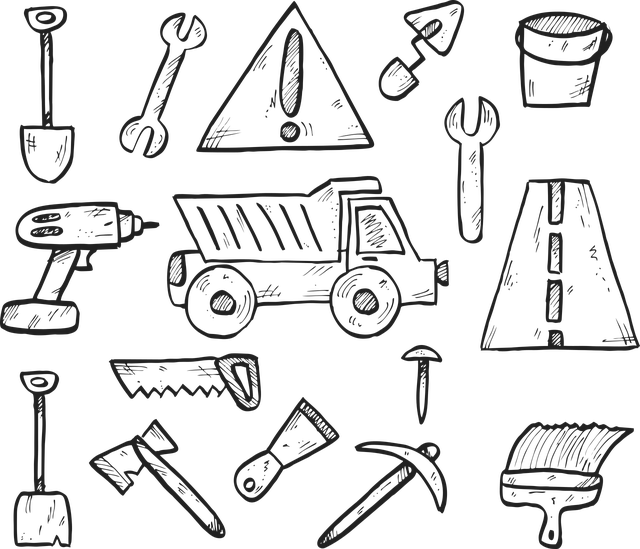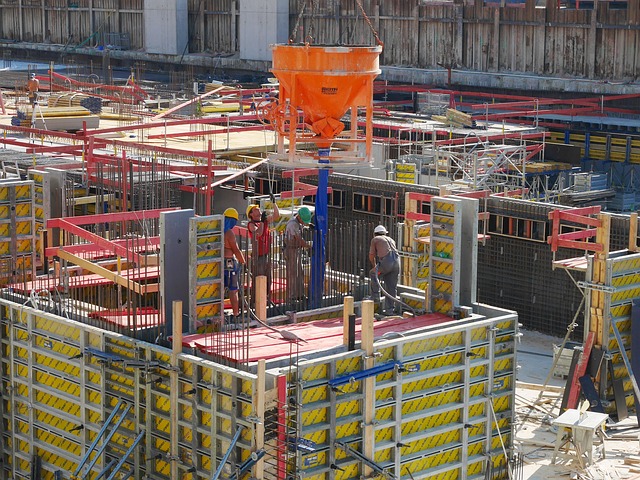Small construction contractors can expand operations and manage larger projects efficiently through strategic financing solutions like equipment loans and leasing. A key step in securing optimal terms involves thorough lender evaluation, comparing interest rates, and preparing detailed loan applications. Equipment leasing offers tax advantages and flexible terms, enhancing project management capabilities. By focusing on reputable lenders specializing in construction equipment financing, small businesses can access tailored solutions for agile, competitive growth while streamlining equipment acquisition and project delivery.
“Small contractors play a vital role in shaping our built environment, but securing funding for heavy machinery can be a challenge. This comprehensive guide explores construction equipment loans as a powerful tool for small businesses to navigate the industry. We delve into understanding different financing strategies, evaluating lenders, and optimizing tax benefits through equipment leasing. By mastering these aspects, contractors can streamline project management, ensure efficient operations, and secure their financial future.”
- Understanding Construction Equipment Loans: A Small Contractor's Guide
- Financing Strategies for Acquiring Heavy Machinery
- Evaluating Lenders: Key Factors in Securing the Best Loan
- Maximizing Tax Benefits and Streamlining Project Management with Equipment Leasing
Understanding Construction Equipment Loans: A Small Contractor's Guide

Construction equipment loans are a vital financing strategy for small contractors looking to expand their fleet and take on larger projects. These loans provide an opportunity to acquire heavy machinery, vehicles, and tools that are essential for efficient project management. By securing a loan, contractors can access high-quality equipment without breaking the bank, allowing them to compete in a bustling market.
When considering construction equipment loans, small contractors should embark on a thorough lender evaluation process. This involves comparing interest rates, repayment terms, and the overall flexibility of different lending options, including traditional banks, credit unions, and specialized equipment leasing companies. A well-crafted loan application, detailing the intended use of funds and projected project timelines, can enhance the chances of securing favorable terms. Additionally, exploring tax benefits associated with equipment leasing can further offset the financial burden, making these loans an attractive option for smart business growth.
Financing Strategies for Acquiring Heavy Machinery

Small contractors often face challenges when it comes to financing the purchase or lease of heavy machinery, essential for their projects. Luckily, there are various financing strategies available that can help bridge this gap. One popular option is equipment leasing, which allows contractors to rent the machinery for a specific period, offering flexibility and potential tax benefits. This method is particularly attractive for smaller businesses as it requires less upfront capital and often includes maintenance and support from the leasing company.
When exploring financing options, contractor should thoroughly evaluate different lenders and their offerings. A careful lender evaluation process involves comparing interest rates, loan terms, and any associated fees. A well-prepared loan application, detailing the project scope and equipment requirements, can significantly enhance the chances of approval. Effective project management, including clear timelines and budget planning, will also contribute to a smoother financing journey and ensure that the contractor can afford the repayments while focusing on delivering quality work.
Evaluating Lenders: Key Factors in Securing the Best Loan

When exploring construction equipment loans, small contractors should prioritize thorough lender evaluation as a critical step in securing the best financing strategy for their needs. Key factors to consider during this process include lender reputation and experience in serving the construction sector, interest rate transparency, flexible loan terms catering to project timelines, and understanding of the unique challenges faced by smaller businesses. Reputable lenders with specialized knowledge in equipment leasing can offer tailored solutions that align with efficient project management.
Furthermore, evaluating potential tax benefits associated with different loan options is vital. Some financing strategies may provide deductions or write-offs for business expenses related to equipment acquisition, enhancing overall financial health. When submitting a loan application, contractors should be prepared with detailed project plans and financial projections, enabling lenders to assess their viability and capacity for responsible borrowing. This collaborative approach ensures that the chosen lender not only funds the purchase of much-needed equipment but also contributes to the success of the contractor’s endeavors through informed project management and fiscal responsibility.
Maximizing Tax Benefits and Streamlining Project Management with Equipment Leasing

Maximizing Tax Benefits and Streamlining Project Management with Equipment Leasing
Equipment leasing offers a powerful financing strategy for small contractors looking to acquire construction equipment. By choosing this alternative to traditional loans, contractors can unlock significant tax benefits. Many equipment leasing agreements qualify as operating leases, allowing expenses related to the lease to be deducted from taxable income. This can result in substantial savings, especially for smaller businesses with tight profit margins.
Furthermore, equipment leasing streamlines project management by simplifying the acquisition process and reducing financial burden. Instead of dealing with lengthy loan applications and complex lender evaluations, contractors can focus on securing the necessary equipment quickly. Leasing agreements are often more flexible, offering options to upgrade or replace machinery as projects evolve, ensuring small contractors stay agile and competitive in a dynamic industry.






